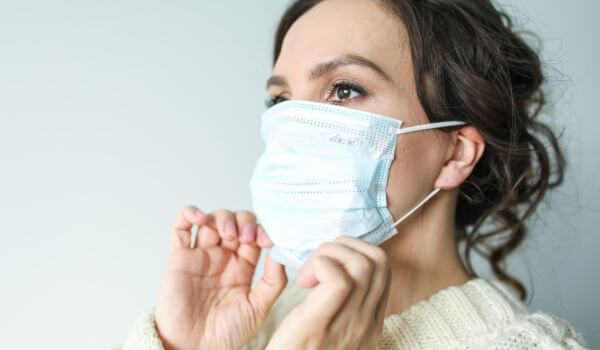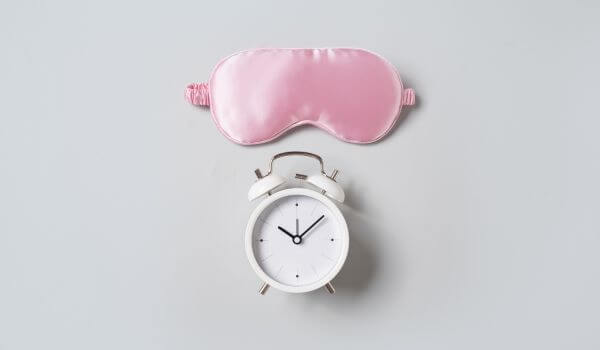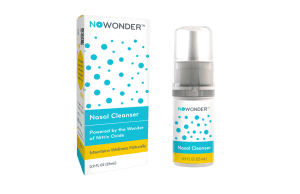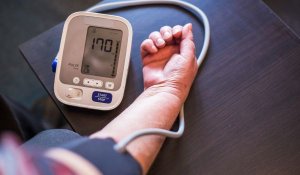 Let’s put it in dramatic terms: if high blood pressure were a character in a story, it would be the quiet neighbor who turns out to be a serial killer. It’s subtle, gives no nasty warning signs, and by the time it makes its move, it’s probably too late to prevent any damage. Now, perhaps you can understand why the medical world takes the threat of hypertension so seriously.
Let’s put it in dramatic terms: if high blood pressure were a character in a story, it would be the quiet neighbor who turns out to be a serial killer. It’s subtle, gives no nasty warning signs, and by the time it makes its move, it’s probably too late to prevent any damage. Now, perhaps you can understand why the medical world takes the threat of hypertension so seriously.
The basics: What is high blood pressure?
In simple terms, blood pressure is the force exerted on the walls of your arteries as your heart pumps blood around your body. It’s measured in two numbers: the pressure when your heart beats (systolic – the top number) and the pressure when your heart rests (diastolic – the bottom number). It’s expressed as the two numbers in mmHg (which means millimeters of mercury, from the olden days when blood pressure was measured using sphygmomanometers that actually had small columns of mercury in a graduated tube, and doctors read the height of the mercury column.) A “normal” reading hovers around 120/80 mmHg.
Hypertension, or high blood pressure (HBP), is diagnosed when readings consistently hit or exceed 130/80 mmHg. This isn’t just a number; it’s a risk multiplier for stroke, heart attack, kidney disease, and more.
What causes high blood pressure?
The basic problem is that doctors don’t always know. Most people have what’s called primary hypertension, which means there’s no single identifiable cause. It tends to develop over years and is tied to aging, genetics, lifestyle, and, let me be blunt, our modern habits of stress, poor diet, and couch-bound evenings.
Then there’s secondary hypertension, where a specific condition like kidney disease, thyroid dysfunction, or some medications (like stimulants, NSAIDs or birth control pills) drives blood pressure up.
So, what are the main causes of HBP?
According to the Federal Government’s National Heart and Lung Institute, the most common contributing factors include:
- Genetics
- Age
- Lifestyle
- Excess salt intake (which leads to fluid retention)
- Obesity
- Lack of physical activity
- Smoking and alcohol consumption
These, on their own or in combination, cause the heart to work harder to pump blood through the body, raising systolic pressure and potentially damaging artery walls, kidneys, eyes, the heart itself, and even the brain.
Other unrelated conditions can cause elevated blood pressure, such as:
- Kidney problems. The kidneys play a crucial role in regulating fluid balance and blood pressure. When the kidneys don’t function properly, it can disrupt this delicate balance.
- Hormonal imbalances, such as hyperthyroidism or Cushing’s syndrome, can lead to increased blood pressure.
- Sleep apnea is characterized by repeated pauses in breathing during sleep, which can cause sudden surges in blood pressure.
- Side effects of medications like stimulants, decongestants, pain relievers, and even some birth control pills can result in elevated blood pressure.
- Anxiety can cause high blood pressure, but usually in spikes. It comes more from the long-term impact of stress hormones on your cardiovascular system.
What does high blood pressure feel like?
Spoiler alert: nothing. That’s why it’s often called the “silent killer.” You could have sky-high numbers and feel totally fine. But if symptoms do appear, they might include:
- Headaches
- Shortness of breath
- Nosebleeds
- Feeling flushed or dizzy
- Erectile dysfunction.
And even these signs aren’t reliable. You could feel great, and your heart could still be a ticking time bomb.
How do you feel when your BP is high?
Some people report a sensation of pressure in the head, blurred vision, or palpitations, but none of these are definitive. Regular measurement of blood pressure is the only reliable method of detection.
Long-term effects: What’s the risk of ignoring HBP?
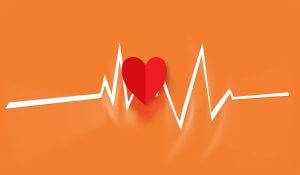
How long can you have high blood pressure before it causes damage?
It varies. Some damage begins within a year, especially to organs like the kidneys, eyes, and brain. But the real danger is cumulative. Think of it like corrosion of iron at the seashore. It’s slow, silent, and inevitable if ignored.
Over time, you’re gambling with:
- Heart attack
- Stroke
- Kidney failure
- Vision loss
- Cognitive decline
What’s worse, you can have a mini-stroke (or transient ischemic attack) if blood pressure spikes, particularly over 180/120 mmHg.
What are the five warning signs of a stroke?
- Sudden numbness or weakness (especially on one side)
- Confusion or trouble speaking
- Trouble seeing
- Dizziness or loss of balance
- Severe headache with no known cause
What are pre-stroke symptoms?
Mini-strokes often present with the same symptoms as full strokes but resolve within minutes to hours. They’re a red flag, not a false alarm.
Kidney damage and BP: An unfortunate pairing
Your kidneys are sensitive little filters. High pressure damages their blood vessels, reducing filtration efficiency.
How high does blood pressure have to be to damage the kidneys?
Chronic readings above 140/90 mmHg are consistently associated with kidney disease progression, especially in diabetics or older adults.
How could blood pressure affect a person’s sexual performance?
Believe it or not, high blood pressure can damage the arteries that supply blood into the penis, leading to failure to achieve a full erection, or carry on through to the end.
Quick fixes and lasting solutions
This is where myth meets medicine.
Can drinking water lower blood pressure?
Not directly. Hydration supports general cardiovascular health, but it’s not a treatment. If you’re dehydrated, drinking water helps, but it’s not a fix for hypertension.
What foods bring blood pressure down fast?
Here are a few ideas, backed by some science:
- Leafy greens (spinach, kale)
- Beets
- Oats
- Berries
- Bananas (hello, potassium)
- Garlic
- Dark chocolate (in moderation)
And leaving things out is even more important. Cutting down on salt is non-negotiable. Aim for less than 1,500 mg/day.
What is the 60-second trick to lower blood pressure?
This sounds like one of those TikTok hacks involving holding your breath or massaging your earlobes. But it’s true! Slow, deep breathing, especially diaphragmatic breathing, can bring peaking BP down a few points temporarily. But it won’t replace medication or lifestyle change.
How can I bring my blood pressure down quickly?
- Sit down, relax, and breathe deeply
- Avoid caffeine or stimulants
- Take prescribed medications as directed
- Drink water if dehydrated
But if your BP is over 180/120 mmHg and you have symptoms like chest pain or vision changes, go to the ER immediately.
What should I do if my BP is 140/90?
This is the borderline for hypertension. If it’s a one-off reading, monitor yourself with more frequent measurements. If it’s consistent, talk to your doctor. Lifestyle changes become essential at this threshold.
Can HBP be reversed?
Can you reverse high blood pressure?
In some cases, the answer is yes, especially if it’s caught early and handled by modifying your lifestyle. Losing weight, exercising, eating a DASH-style diet, quitting smoking, and cutting salt can bring BP back to normal levels. For others, lifelong medication may be needed.
The DASH (Dietary Approaches to Stop Hypertension) diet emphasizes fruits, vegetables, whole grains, lean protein and low-fat dairy while limiting sodium, saturated and unhealthy fats, and added sugars.
How can HBP be treated?
Sometimes, lifestyle changes alone aren’t sufficient to bring blood pressure down to a healthy level. In these cases, doctors have an array of medications that have been shown to be effective for the majority of patients, each working in a different way to lower blood pressure. These include:
| Drug class | Effects | Examples |
| Diuretics (water pills) | Help the body get rid of excess salt (sodium) and water through urine. By reducing the amount of fluid in your bloodstream, there’s less volume for your blood vessels to hold, and thus blood pressure goes down. | Moduret; Lasix; Aldactone, Inspra |
| ACE inhibitors | Blocks the formation of angiotensin II which causes blood vessels to narrow and also triggers aldosterone that causes water retention | Zestril; Vasotec; Altace; Capoten; Monopril |
| Angiotensin II receptor blockers | Blocks the action of angiotensin II on its receptor so blood vessels stay more open and relaxed and water retention is reduced. | Cozaar; Diovan; Diovan HCT); Avapro; Atacand; Benicar; Benicar Plus; Micardis; Edarbi; Edarbyclor |
| Calcium channel blockers | Prevents calcium (which signals muscle fibers to contract) from entering the muscle cells in the heart and artery walls so muscles don’t contract as strongly but instead widen and relax | Norvasc; Procardia XL; Exforge; Cardizem; Isotopin |
| Beta blockers | Block the effects of adrenaline on heart muscles, so the heart doesn’t speed up when stimulated. Beta-blockers “put a brake” on the heart so it beats more slowly and with less force. | Lopressor; Tenormin; Coreg; Inderal; Zebeta; Bystolic |
| Alpha-blockers | Alpha-1 blockers block alpha-1 receptors on the smooth muscle of blood vessels and cause the vessels to relax and remain open. | Cardura; Hytrin; Catapres
|
| Vasodilators | Act directly on the smooth muscle of the arteries to relax them, causing them to dilate. | Loniten |
Exercise is the natural vasodilator
What is the best exercise to lower blood pressure?
Aim for at least 150 minutes of moderate-intensity aerobic exercise (like brisk walking, cycling, or swimming) per week, or 75 minutes of vigorous-intensity exercise. Even shorter bursts of activity throughout the day can be beneficial.
If you have a choice between competitive activity like tennis, picket ball or football, instead of self-paced exercise, then, according to the experts, aerobic activities win:
- Brisk walking
- Cycling
- Swimming
- Dancing
Blood pressure and age: What’s “normal”?
What is normal blood pressure by age?
Youth isn’t a free pass to health. While it’s true that older adults often see systolic pressure rise due to stiffening arteries, the target BP for all adults remains under 130/80 mmHg. Don’t accept rising numbers as “just aging.”
Manage yourself.
Regular home blood pressure monitoring can help you and your doctor track your progress and make necessary adjustments to your treatment plan. Just make sure you’re using a reliable monitor and following proper technique. Remember, blood pressure isn’t just a number, it’s a signal. It reflects your lifestyle, your genetics, and often your inattention. We live in a culture where “fix it later” is the mantra, but when it comes to hypertension, “later” can be too late.
Takeaway points
- Most high blood pressure has no symptoms
- It damages organs silently over years
- Risk factors include diet, weight, inactivity, stress, and genetics
- Lifestyle change is powerful, but not always enough
- Early diagnosis and consistent monitoring are crucial.
FAQs about high blood pressure
How do you feel when BP is high?
Often, you don’t feel anything. This is why high blood pressure is called the “silent killer.” Many people have high blood pressure for years without experiencing any symptoms. In some cases, very high blood pressure might cause headaches, dizziness, nosebleeds, or shortness of breath, but these are not reliable indicators and often only occur once the condition is severe. Only a blood pressure monitor gives you the truth.
What is the main cause of HBP?
For most people (around 90-95% of cases), the main cause is what is called primary or essential hypertension. This isn’t due to a single identifiable medical condition but rather a complex interplay of genetic factors, age, and lifestyle choices, a mix of poor diet (especially excess salt), lack of exercise, obesity, and stress. In a smaller percentage of cases (secondary hypertension), high blood pressure is caused by an underlying medical condition like kidney problems, hormonal disorders, or sleep apnea, or side effects of medications.
How long can you have high blood pressure before it causes damage?
The insidious nature of high blood pressure is that it can cause damage over many years, often without any noticeable symptoms. The longer it goes untreated, the greater the risk of damage to vital organs like the heart, brain, kidneys, and eyes. The timeline for when significant damage occurs varies from person to person, depending on the severity of the hypertension and other individual risk factors. Damage can begin within a year, so early control is essential to avoid complications like stroke or kidney failure.
How can I bring my BP down quickly?
If you experience a sudden, severe spike in blood pressure, seek immediate medical attention. While there are no instant cures, certain immediate actions can help lower a dangerously high blood pressure in the short term. These should only be done under medical supervision. In a non-emergency situation, sit quietly, practice deep breathing, and avoid stimulants. Take prescribed meds if applicable. Techniques like deep breathing exercises might offer a temporary, slight reduction, but they are not a substitute for proper medical management.
Can drinking water lower blood pressure?
Staying adequately hydrated is important for overall health and can help maintain healthy blood volume, which in turn supports healthy blood pressure. However, simply drinking water is not a quick fix for high blood pressure and won’t significantly lower it in the long term. It’s part of a healthy lifestyle, but not a primary treatment for hypertension..
What should I do if my BP is 140-90?
This is borderline hypertension. Repeat the measurements after a while and if still high, consult with a doctor to discuss these readings. They will likely want to take multiple readings over time and consider your overall health profile and other risk factors to determine the best course of action. This might involve lifestyle recommendations and/or medication. Don’t ignore these readings!
What foods bring blood pressure down fast?
No single food will drastically lower blood pressure instantly, but incorporating the right foods into your diet regularly can contribute to a gradual and sustained reduction over time. These include foods rich in potassium (like bananas, spinach, and sweet potatoes), magnesium (like dark chocolate and leafy greens), and nitrates (like beets and leafy greens). The DASH diet, rich in fruits, vegetables, whole grains, and low-fat dairy, is a dietary pattern proven to lower blood pressure.
What is the 60-second trick to lower blood pressure?
Slow, deep breathing may lower BP briefly but no magic trick replaces real treatment. While some relaxation techniques can have a temporary calming effect that might slightly lower blood pressure, they are not a substitute for evidence-based medical treatment and lifestyle changes for managing hypertension. There’s no magic bullet here.
Can you reverse HBP?
In some cases, yes, high blood pressure can be reversed, particularly in the early stages or when it’s primarily driven by lifestyle factors like obesity, unhealthy diet, and lack of exercise. Significant lifestyle changes can often lead to a substantial reduction in blood pressure, and in some individuals, it might even return to a normal range without the need for medication. But for many, drugs are still required, especially those with long-standing hypertension or secondary hypertension.
How can I bring my blood pressure down quickly?
As mentioned before, there’s no safe and rapid way to drastically lower blood pressure outside of a medical emergency setting. If you have severely high blood pressure, seek immediate medical attention. For long-term management, focus on consistent lifestyle changes and adhere to your doctor’s prescribed medication regimen. Gradual and sustained changes are the key to effectively lowering and controlling blood pressure.
What is the best exercise to lower blood pressure?
People with high blood pressure should always consult a doctor before starting a new exercise program, especially if there are pre-existing health conditions. Aerobic exercises like brisk walking, jogging, swimming, cycling, and dancing are generally very effective at treating high blood pressure. Aim for moderate-intensity exercise for at least 150 minutes per week. Incorporating resistance training (like weightlifting) a couple of times a week can also be beneficial for overall cardiovascular health.
What are the 5 warning signs of a stroke?
It’s crucial to recognize the signs of a stroke and act FAST:
Face drooping: Is one side of the face drooping or numb? Ask the person to smile.
Arm weakness: Is one arm weak or numb? Ask the person to raise both arms. Does one arm drift downward?
Speech difficulty: Is speech slurred or hard to understand? Ask the person to repeat a simple sentence.
Time to call 911: If someone shows any of these symptoms, call 911 immediately. Every minute counts!
While high blood pressure is a major risk factor for stroke, these are the acute warning signs of a stroke in progress, not necessarily symptoms of high blood pressure itself.
What are pre-stroke symptoms?
TIAs (transient ischemic attacks) are often considered “warning strokes” or pre-stroke symptoms because they involve temporary stroke-like symptoms that resolve within minutes to hours. The symptoms are the same as a full stroke (FAST: Face drooping, Arm weakness, Speech difficulty), but they pass over fairly quickly. Experiencing a TIA is a serious warning sign that a full stroke may be imminent, and it requires immediate medical attention.
How high does your blood pressure have to be to have a mini stroke?
A “mini-stroke,” or transient ischemic attack (TIA), has the same underlying causes as a full stroke, often involving a temporary disruption of blood flow to the brain. While high blood pressure significantly increases the risk of both TIA and stroke, there isn’t a specific blood pressure number that guarantees a TIA will occur. The risk increases with higher blood pressure over time, as it damages blood vessels and makes them more prone to blockages or rupture.
How high does blood pressure have to be to damage the kidneys?
Chronically elevated blood pressure, even if not extremely high in the short term, can gradually damage the delicate blood vessels in the kidneys over time. There isn’t a single specific number, but consistently high blood pressure readings (generally 140/90 mmHg or higher) increase the risk of kidney damage. The longer blood pressure remains uncontrolled, the greater the likelihood of developing kidney damage due to high blood pressure (hypertensive nephropathy).
Can anxiety cause HBP?
Anxiety can definitely cause temporary spikes in blood pressure due to the body’s stress response. When you’re anxious, your body releases hormones like adrenaline, which can increase your heart rate and narrow your blood vessels, leading to a temporary rise in blood pressure.
What is normal blood pressure by age?
While doctors do have general guidelines for normal blood pressure, it’s important to understand that what’s regarded as “normal” can vary depending on individual factors and other health conditions. However, for most adults, a normal blood pressure reading is considered to be below 120/80 mmHg. While blood pressure tends to increase with age in many individuals, the target for healthy blood pressure generally remains below 130/80 mmHg for most older adults, although this can be individualized by a doctor based on their overall health. It’s not so much as there being a “normal BP by age” chart, but instead about achieving a healthy target range recommended by your healthcare provider.




